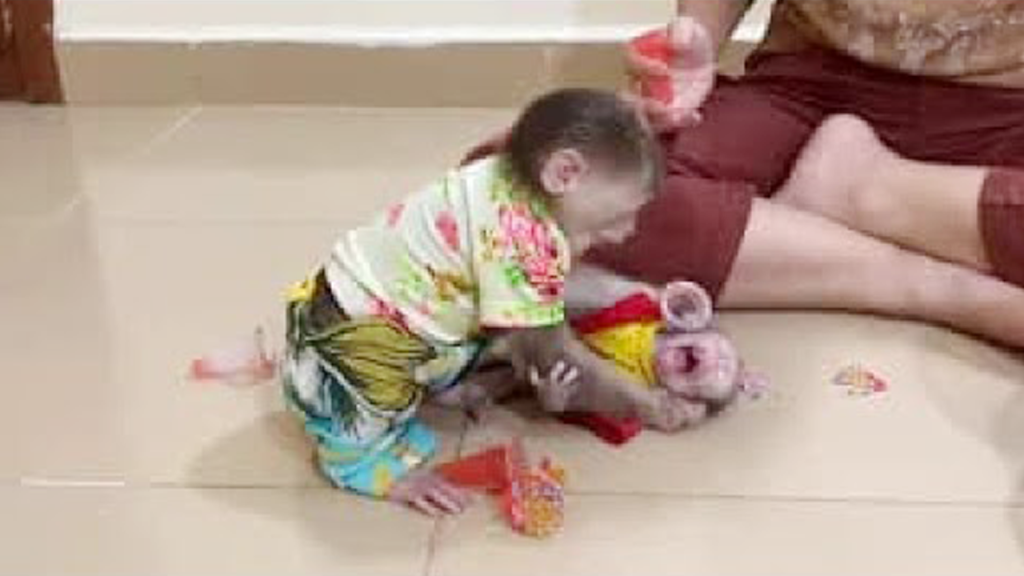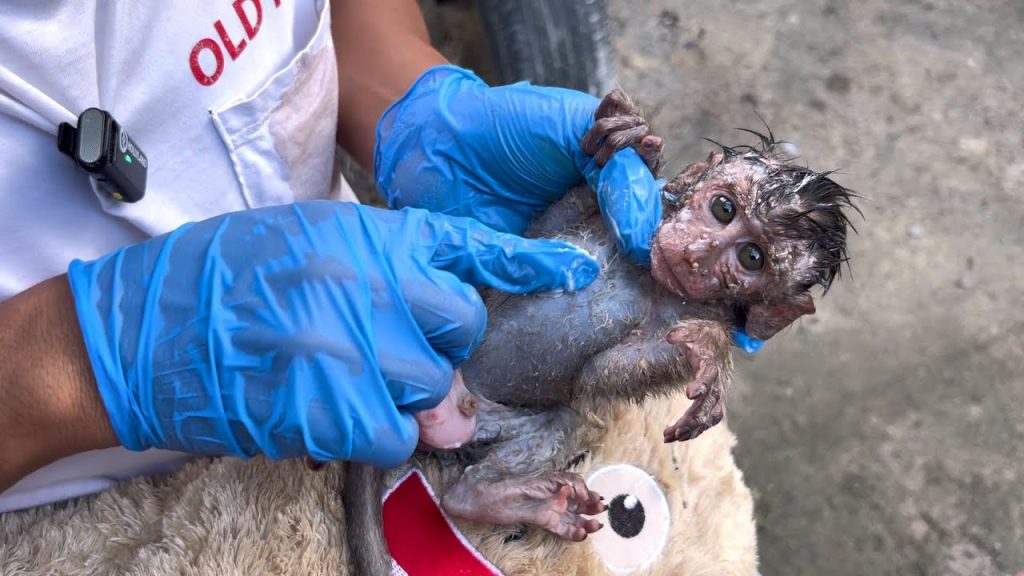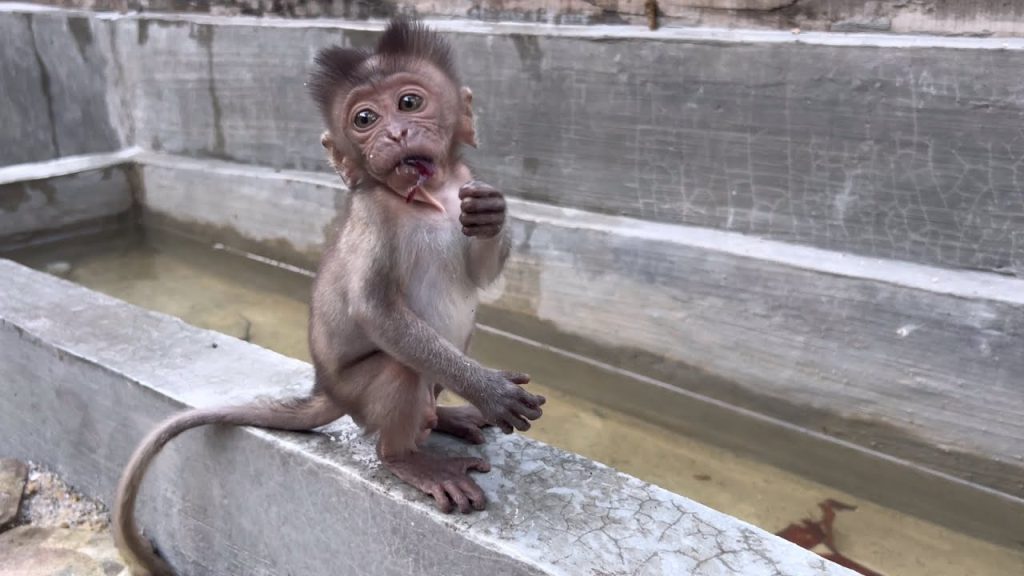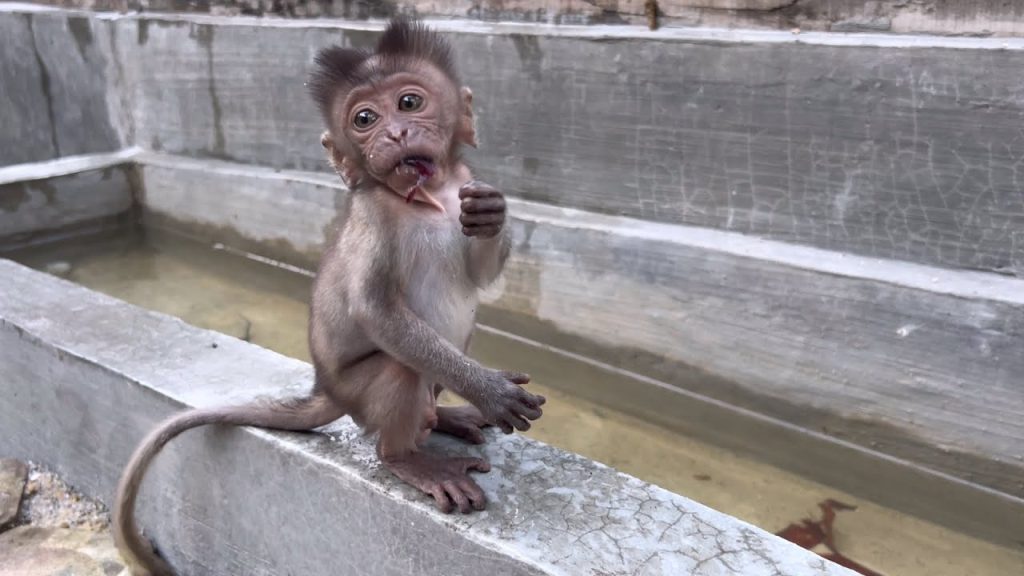
When Pavpav pulls Linda to the floor while they are eating jelly together, this is not only a rude moment — it is a socially significant behavior that shows how resource competition, jealousy, impulsivity, and dominance expression can override gentle cooperation during early development stages in young primates. In the exact second when food is present — especially sweet, high-value food like jelly — the emotional brain activates faster than the social brain. And so even if a moment looks like “friends sharing a treat,” the inner survival instinct is silently pulsing under the surface. Pavpav’s rough action, yanking Linda off balance, is a kind of primitive declaration: “I want the advantage.” It is not polite, but it is a very old behavior pattern in both human children and monkeys.
Tiny social mammals do not yet have the mature cognitive ability to negotiate, trade, or politely request. They solve problems in the most simple physical language: push, pull, grab, take. Linda being pulled to the floor becomes the symbol of a shift in power. In her eyes, the ground is not just a surface — it is humiliation, loss of stability, sudden emotional shock. That moment is a deep emotional data point carved into her memory. Next time she sees Pavpav near food, her body will remember before her mind analyzes. She will tense. She will expect another attack. This is how mistrust forms between babies.
But the important lesson is not simply “Pavpav is mean” — the important lesson is that this event can now be used for social training. The caregiver must intervene not by punishment alone, but by shaping association. After a pull-down incident, food time must be re-structured so that good behavior is linked with reward. Pavpav should only get jelly when he is calm, gentle, and respectful. If he grabs or pulls, access pauses. This teaches a powerful primitive formula: aggression blocks reward; calm behavior unlocks reward.
Linda also needs comfort and protection afterward. If she is emotionally soothed, her nervous system will not store this memory as deep trauma, but as a temporary shock followed by safety. And over repeated structured meals, they can slowly relearn how to sit together without competition. The goal is not to eliminate instinct — the goal is to teach self-control — so that even in the presence of delicious jelly, cooperation becomes more rewarding than domination.


